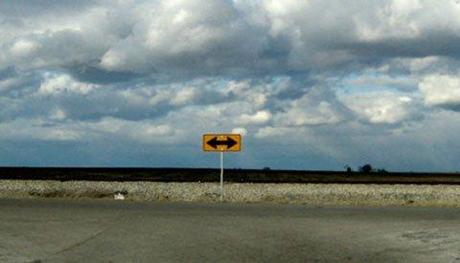
Pakistan’s economy since independence has been confused. Much has been discussed about poor government regulations that resulted in an uncertain economy, necessitating dramatic changes in the regulatory framework to address alarming economic challenges.
What should be done to get the economy humming, and prevent GDP decline?
During fiscal year 2012-13, the resistance to coping with prevailing challenges such as an energy crisis and bad law and order situation (due to political uncertainties) cause the country’s economy to miss its GDP growth target of 4.3 percent, instead growing at an estimated at 3.59 percent for the fiscal year. Social indicators are still disappointing and do not inspire much confidence about the living conditions of the average Pakistani; Pakistan ranks 146th among 186 countries in the Human Development Index.
UNDP officials believe that policy makers should focus on health and education sectors in order to move towards development as Pakistan falls in the “low human development” category. Pakistan’s expenditure on social sectors is lower than some of the poorest African countries. The reports further says, ‘49 per cent of Pakistan’s population lives in poverty’ and Pakistani politics are primarily dominated by a political elite consisting of roughly 100 families that can afford electioneering. Income inequalities, rural-urban differences, and gender disparities have worsened over time. According to the Global Competitiveness Report 2012-13, Pakistan, being on the first stage of development (Factor Driven Economy), ranked at 124th place among 144 countries and further loses its competitiveness due to high levels of corruption and poor governance slowing down economic growth.
One answer to this is in the findings of the Global Entrepreneurship Monitor Report 2012, a worldwide survey of entrepreneurship, in which more than 198,000 adults in 69 economies took part, with the largest sample of group of economies representing an estimated 74 percent of the world’s population and 87 percent of the GDP.
The GEM 2012 Global Report says “Nearly Half of the World’s Entrepreneurs are between the Ages of 25 – 44” meaning people are participating in entrepreneurial activities at all age levels — youth as well as those who are in their late career are starting businesses. Pakistan scores above average under opportunity and capabilities perception, which is a noticeable attitude as compared to wealthier economies in the Asia Pacific/South Asia region.
“Entrepreneurship creates employment and adds economic value for economies everywhere. But this activity must be enacted in tandem with inclusiveness for all sections of society, because it is an effective way to encourage prosperity and peace.”
Siri Roland Xavier, report’s lead author.
CIPE is facilitating, encouraging and supporting entrepreneurship with the aim to foster entrepreneurial activities in Pakistan. In order to do so CIPE has provided various training sessions and resources to effectively engage youth and women in entrepreneurial pursuits and influence cultural attitudes about entrepreneurship in Pakistan. Entrepreneurs have the potential to contribute substantially to society through knowledge and information transfer, new business startup, global trade, and job creation, which will certainly help economy in the long run and sow the seeds for a prosperous and stable democracy.
Entrepreneurial activities can certainly save Pakistan but lot depends on the newly elected government’s policies and regulations and whether or not they can grow the spirit of entrepreneurship and free enterprise.

